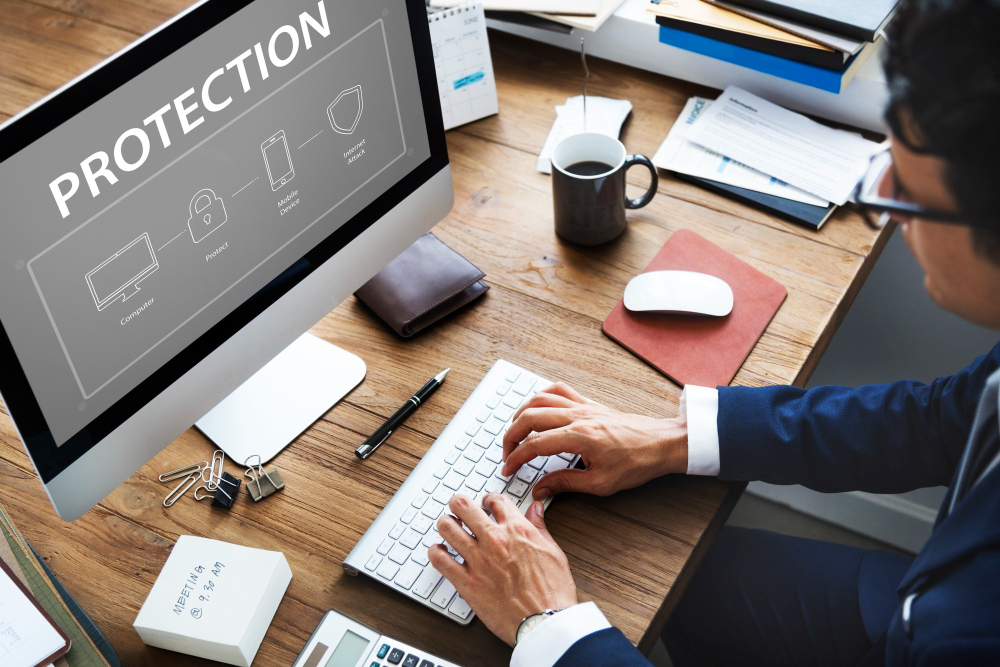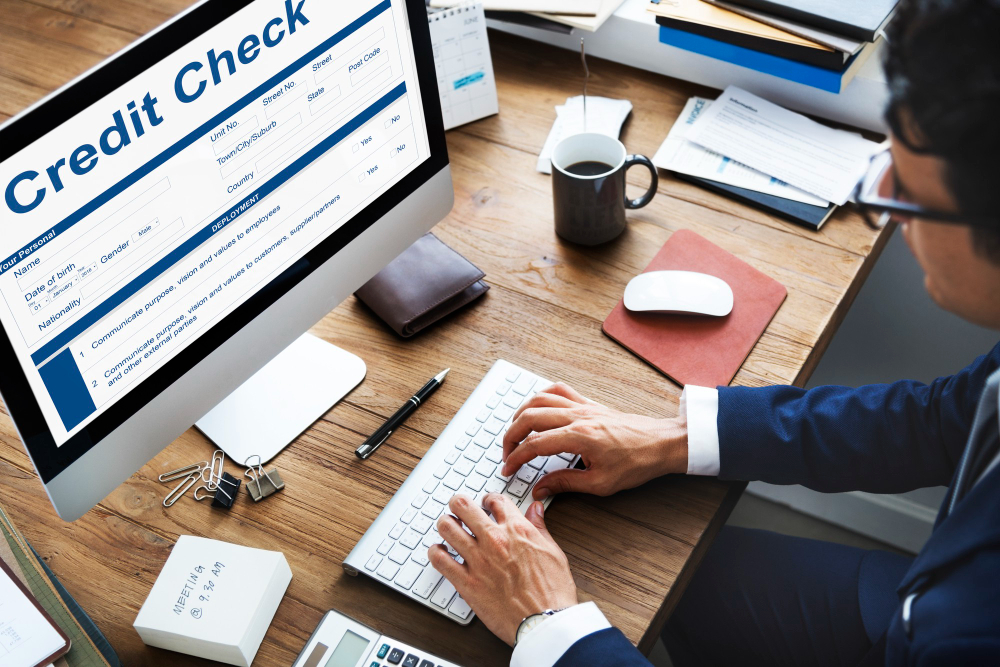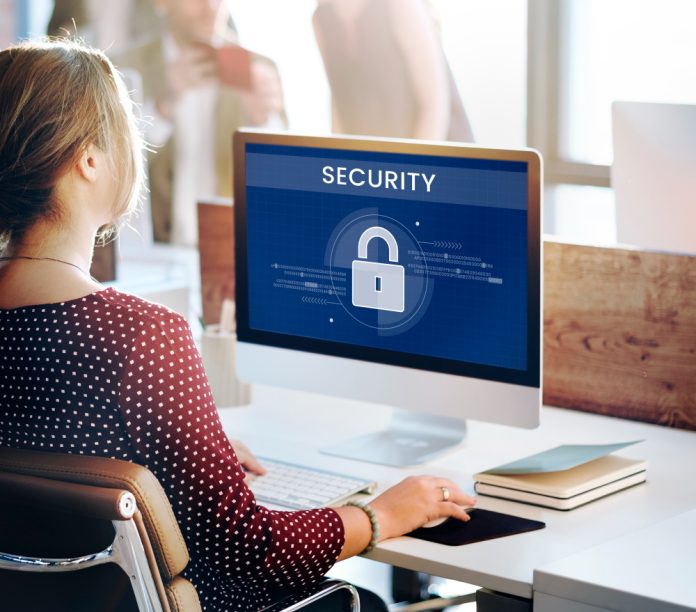Online users reported losing over $5.8 billion to fraud in 2021. This is a 70% increase over the previous year, as noted by the Federal Trade Commission.
During the Covid-19 pandemic, fraud has increased as scammers take advantage of consumer fear and confusion. Some scams they pulled off include stealing people’s personal data to file for unemployment and other benefits.
Modern life is heavily dependent on the internet. Most people own laptops, tablets, phones, smartwatches, and more. Here are eight online security tips to help you avoid scams and make it hard for fraudsters to access and use your personal information against you.
Table of Contents
1. Be Aware of Typical Scammer Behavior

Recognizing the common signs of a scam could help with fraud protection. Some of the signs include:
Scammers Saying There’s a Problem or a Prize
Fraudsters might tell you that you’re in trouble with a certain organization you’re connected to or with the government. They may even say that you owe money or that your computer has a virus.
In some cases, they might say that there’s an issue with one of your accounts and ask for personal details to verify some information. Some will say you won a prize or money but ask you to pay a fee to get it.
Fraudsters Pretending to be From a Familiar Organization
Fraudsters often pretend to be contacting you on behalf of a company you have affiliations with. They might use an official name such as the Social Security Administration, a utility company, or a charity that needs donations.
They may also use technology to change the phone number on your caller ID so as not to seem suspicious.
Scammers Pressuring You to Act Immediately
They insist that you act on their requests before you have time to think. While on the phone, they may tell you not to hang up so you can’t verify their story.
Fraudsters might even threaten to sue you, arrest you, or confiscate your essential documents if you don’t play by their rules. The aim is to scare you by telling you that your computer is about to be corrupted if you don’t act immediately.
2. Protect Your Online Information

To achieve online safety, maintain your computer’s security software and avoid entering personal details into public computers. They may contain software that saves passwords and personal information you enter.
When creating a new password, ensure it meets the strong password requirements. Don’t use common passwords that are easy to guess. It would be best if you also changed your passwords often.
You can get help from companies such as Wlan Labs to gain more knowledge on online safety and privacy. They can help you make informed decisions about your security needs to avoid scams better.
3. Shred Sensitive Documents
As soon as you reconcile your banking records, such as deposit slips, ATM, and cheques, with your monthly statement, shred them. Store monthly account statements safely until you file your taxes, then shred.
Don’t dispose of sensitive documents in the trash. Use a paper shredder to get rid of anything with bank information and personal details.
4. Be Careful About WiFi
Don’t connect to unsecured public WiFi networks. Your online safety on such networks is at risk because scammers can access your personal information via public WiFi.
Protect your WiFi with a strong and unique password. It’s also advisable to frequently change your password.
5. Track Your Credit Reports

Monitoring your credit is an important online security tip to ensure that no one interferes with your financial information. You can request a free credit report to see who is making inquiries about your credit.
National credit reporting companies such as Equifax, TransUnion, and Experian can help. Occasionally review your credit reports to ensure there’s no suspicious activity and everything is as it should be.
A credit freeze is an effective technique to help avoid scams for added protection. You can learn how to freeze your credit card for free.
6. Monitor Your Accounts
It’s necessary to log into your account daily through a mobile banking app. This measure enables you to quickly track your balances and account activity to catch unauthorized transactions.
You can set up online banking alerts to notify you of changes in your account and transactions based on your preferences.
7. Exercise Cautions While Traveling
It’s easier to fall prey to certain fraud and identity theft types during travels. You need to take extra precautions to protect your online identity while traveling.
Inform your bank about where you’re going and the duration you’ll be gone, and ask the post office to hold your mail. Plan payments for due bills while you’re gone before you leave.
While traveling, observe the following extra safety measures to protect your personal information and items:
- Use the hotel safe to protect valuable documents and cash when you leave your room
- While paying an online bill, ensure you’re connected to a secure WiFi network
- Be careful when using your bank cards to pay local vendors
8. Always Reconsider Sharing Your Personal Information

Avoid giving out personal information unless you’re sure it’s from a trustworthy source. Be cautious of emails or phone calls that request sensitive information.
Phishing, which uses fraudulent messages or calls that appear to come from verified sources, is one of the most common fraud issues.
Online Security Tips
A bit more vigilance goes a long way regarding internet safety and protecting your identity online. Adding extra security is not a hard thing to accomplish. Shred sensitive documents, monitor your accounts and be careful with passwords.
Some data breaches are not under our control, such as when companies with our personal information are hacked. Apart from this, we have to do all we can to protect our private data.
Total privacy in this day and age is quite difficult, so we must be alert at all times. Use these online security tips to ensure that fraudsters don’t access your personal information and use it against you.
